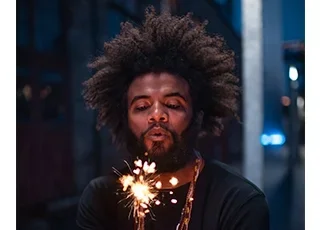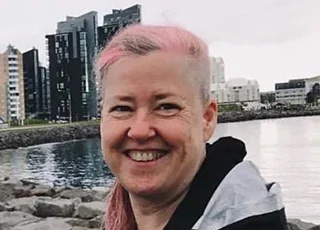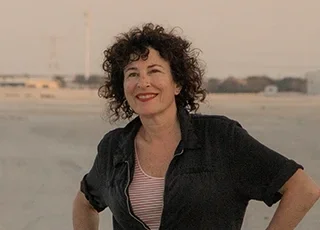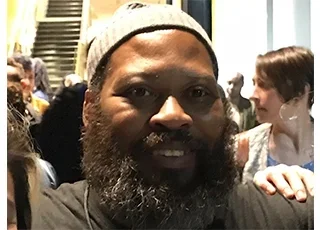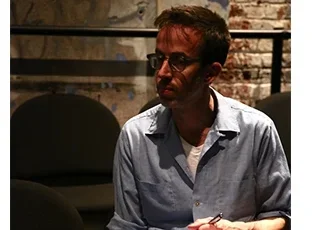MFA in Public Action
The Master of Fine Arts in Public Action is a highly selective graduate degree program, designed to give accomplished artists working as agents of social change the time, space, and focus to conduct research and develop new work.
MFA fellows are expected to have substantial professional experience in socially or civically engaged public art or related areas, well beyond undergraduate studies. We recognize the achievements of artists who have had significant careers and encourage them to apply in order to continue their creative research.
In a supportive and challenging environment, fellows collaborate with expert faculty members and other students, including undergraduates, to deepen their artistic passions and to hone their skills. MFA in Public Action fellows have access to the College’s outstanding facilities whenever possible, in consultation with the faculty in the discipline of spaces or materials they are requesting.
Prior to applying to the MFA in Public Action and/or to receive more information, please email capa@bennington.edu
Curriculum
The curriculum for the MFA in Public Action is largely self-directed: fellows work closely with faculty to design an education plan that best suits their individual strengths, interests, goals and creative process.
Each year of Bennington’s program consists of a 14-week fall term and a 14-week spring term. The spring term begins in late February, after a 7-week undergraduate winter Field Work Term during which there are no classes. MFA fellows are able to use this time as well as the summer to continue their professional work. Short-term professional commitments during the school terms may be accommodated on a case-by-case basis.
Each term requires a minimum 16-credit schedule, which includes both research work in creative public action and other coursework. As a core requirement, fellows meet in a once-a-week tutorial with faculty to discuss and show the development of new material. This 6-credit course, Graduate Research in Public Action, is the basis of the individual’s studies. Throughout the term, all participants in the program are encouraged to show and discuss works-in-progress.
Other courses may be elected from the full undergraduate curriculum with expectations of a higher level of engagement and performance (2-4 credits each) or in combination with tutorials crafted with individual faculty. Additionally, each fellow participates in a 2 credit advising and mentorship tutorial focused on teaching at Bennington College and related graduate level academic topics, which will be overseen by a Bennington faculty member.
The application essay describing a fellow’s experience in the field and goals for their time at Bennington serves as an outline for initial discussions with a faculty advisor. During the first term, each fellow works with an advisor to further design a plan of study. Throughout the two years, each student will meet regularly with an advisor and have ongoing access to the teaching faculty.
As integral members of the overall Public Action Program, fellows are expected to contribute to all aspects of the program, participate in meetings, attend workshops, lectures and performances. The program provides multiple opportunities for creating new work and encourages everyone to participate in an ongoing community dialogue that is fundamental to advancing one’s artistic practice.
Current MFA Fellows
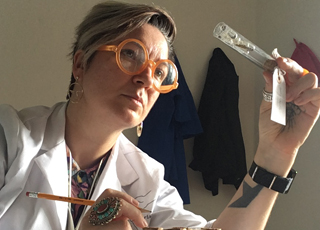 Elæ Moss
Elæ Moss
Elæ Moss is a multimodal artist-researcher, curator, and facilitator designing speculative human, institutional and ecological systems through the iteration of open source strategies for social and structural change.
Moss’s work invites the public to engage with what the artist terms “Speculative Solidarities,” employing adaptive, site-specific analog and digital media, research, performance, sound, archive and organizational design driven strategic possibilities for emergent human and post-human ecofutures. Their frameworks for considering and reconditioning human neuro-somatic, interpersonal and interspecies infrastructures offer protocols for preparing our bodies and systems for the coming crises and those already underway. Recent projects include: the APRIORI Field Station at STWST/Ars Electronica, the Speculative Resilience Radical Practice Library for Bushwick Open Studios and the Anarchist Bookfair at Judson Church, How to Human: Disruptor Mechanism Protocol for the Segal Center’s Performing Knowledge Festival, Building Interpersonal Infrastructures at SOHO20, and Collaborative Precarity Bodyhacking with storm budwig and Cory Tamler for the Exponential Festival. Recent curatorial projects include Liz Liguori: Light of Hand at La Mama Galleria, [Move Semantics]: Rules of Unfolding at EFA Project Space, and the ongoing 2022 “Year-Book: Autonomous Mechanics Radical Field Cohort,” for Liminal Lab. Publications include Vestiges, Big Echo, Tagvverk, Matters of Feminist Practice, The Transgender Narratives Anthology, Choice Words: Writers on Abortion, and many more. Books include: Ground, Blood Altas, Overview Effect, Sweet and Low: Indefinite Singular, Bodies of Work (in collaboration with painter Georgia Elrod), and The Precarity Bodyhacking Work-Book and Guide.
Moss is the developer / founder of The Operating System / Liminal Lab, as well as for its Open Resource Archive, Hub, and Project Protocol. They are an Adjunct Professor at Pratt Institute, where they will become coordinator of the First Year Architecture Writing Program in 2023. Moss is currently pursuing their MFA at Bennington.
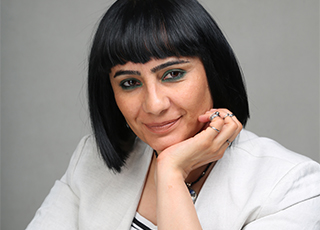 Farzana Wahidy
Farzana Wahidy
Farzana Wahidy is an award-winning Afghan documentary photographer best known for her photographs of women and girls from Afghanistan. She was the first female Afghan photographer to work with international media agencies. Wahidy has been documenting the lives of Afghan women for more than a decade, and she recently established the Afghanistan Photographers Association.
Wahidy was born in Kandahar and moved to Kabul with her family at the age of six. She attended school during the Afghan civil war, and then an underground school after the Taliban took power in 1996. After their defeat in December 2001, Wahidy completed high school and enrolled in a two-year program with AINA Photojournalism Institute. In 2004 she began working as a photographer for Agence-France Presse and later joined the Associated Press. She is a graduate in Photojournalism from Loyalist College in Canada.
Wahidy’s work has been widely published in international magazines and newspapers and she has done assignments for numerous NGOs. In 2014 she created a project to train Afghan photographers, to review copyright law, and to research the history of photography in Afghanistan.
Wahidy’s photographs have been presented in solo and group exhibitions in Afghanistan, Canada, the United States, India, Pakistan, Germany, Italy, Norway, Switzerland, China, Finland, France, and recently Portugal.
Wahidy is also a Fellow at the Academy of Exile at the University Duisburg-Essen and Folkwang University of Arts in Essen. She was a visiting faculty member at Bennington for Spring 2022 and is currently pursuing her MFA at Bennington.
